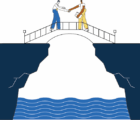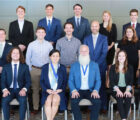Our training as actuaries causes us to think objectively. For example, we think about laws and their applications, human nature and its reactions, facts not fantasies, history as well as trends. We base decisions on objective facts, not conjecture. We also look behind the numbers to determine if the data is erroneous or misleading or doesn’t tell the whole story.
When I started my quest to be an actuary in 1972, there were nine exams required to be a Fellow. In 1975 the CAS added a tenth exam. At about that time, one of my nightmares was that the CAS would add another exam that I needed to pass before becoming a Fellow.
Since news has broken of a proposed combination of the CAS and Society of Actuaries (SOA), it now seems as if there is a recently added exam — one that may have a significant impact on your future and mine as actuaries. This test is for the Fellows who will vote on the proposal in February 2019 if the proposal passes both the CAS and SOA Boards.
For this exam, pass/fail depends upon the performance of the other actuaries taking the exam. In this case, whether you think you passed or failed will depend upon your view of whether or not the CAS should merge with the SOA.
In preparation for this exam, the following are some study questions:
- The SOA has about 30,000 members and the CAS has about 8,000. Which Society will dominate the leadership and policies in a merged organization by having the most votes?
- The SOA, with roughly four times the membership of the CAS.
- The CAS, because its members are more energetic.
- Neither — each side will work together in harmony like the Democrats and Republicans do in the U.S. Congress.
- Which of the following technology advances, predicted to bring about the demise of the actuarial profession, produced a significant decline in the employment of actuaries?
- Hand-held calculators in the 1970s.*
- Personal computers.
- Offshoring actuarial work to countries with lower labor costs.
- Data scientists.
- None of the above, because actuaries always embrace new technologies and use them to advance their profession.
- In 2007, the SOA’s combined membership of Associates and Fellows was 19,350; in 2017, the number was 29,161. The CAS’s combined membership of Associates and Fellows for those same years was 4,558 and 7,873 respectively. Please answer the following:
- What is the compound annual growth rate for each Society?
- Which Society has the higher growth rate?
- Proportionally, which Society seems to be attracting more new members?
- Which Society will be more negatively impacted if national health care does get implemented?
- If a vote is to be held on an issue and only proponents of the issue are holding town halls, what is the expected purpose of such assemblages?
- A fair and open discussion by the town hall speakers of all the pros and cons of the topic.
- A thinly disguised attempt at swaying votes for the proposal set forth by the organizers of the meetings.
- In 2006, the American Academy of Actuaries reported that members indicating their practice area as “pensions” numbered 3,512; in 2017, the number was 3,337. Is this SOA-based discipline growing or in decline?
- Increasing, even though the most recent number is lower.
- Declining.
Extra credit:
Write a short essay explaining whether the following statement is true or false: The pension discipline has been affected by the reduction in defined benefit plans provided by employers.
- If the proposed combination should fail, the CAS should:
- Break off all relationships with the SOA.
- Continue to work with the SOA in areas of mutual concern and separately in areas of differences in our disciplines, as we have done for over 100 years.
If you are a Fellow, you have already registered to “take” this exam, in other words, to vote. Failure to vote will mean that others will make the decision for you.
You may not think that I have represented both sides of the argument adequately, but I encourage you to gather more information and discuss the issues with your colleagues.
The whole point of this IMO is to get you to think about the topic at hand. Think about it with the same rigor as you do your professional work.
* I had a Hewlett/Packard (HP) scientist tell me that calculators would eliminate the need for actuaries. We’re still here. Where’s HP?











